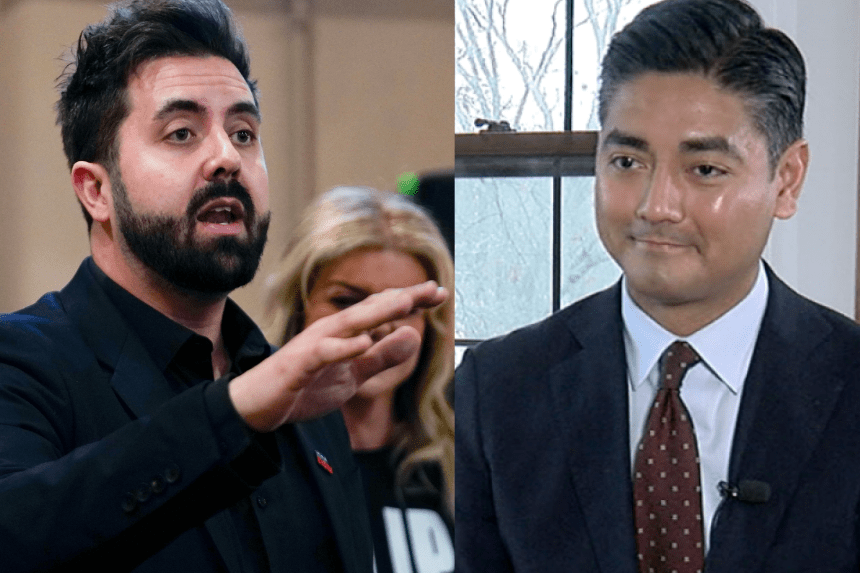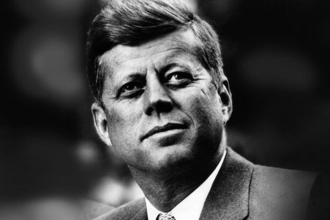As Republican challenger Cory Bowman gets ready to square off against Democratic incumbent Aftab Pureval this November, the Cincinnati Mayoral Race is getting hot. While Pureval has a significant political influence in Cincinnati, Bowman, the younger half-brother of U.S. Vice President JD Vance, is becoming more and more popular following second place in the primary. Having outperformed another Republican candidate, his main triumph has put Pureval directly in competition. Both candidates are making their points to Cincinnati’s citizens as the general election approaches, Bowman stressing a modern approach to government.
Cory Bowman is who? And what drives his run?
Along with co-owner of a neighborhood coffee business, Cory Bowman, 36, is the pastor of an evangelical church in Cincinnati. His aim to bring about good change in his neighborhood drives his mayoral candidacy. Bowman argues that his political path is autonomous, even if he is well-known as the half-brother of JD Vance. Bowman made it abundantly apparent in a recent interview that his brother had no say on his running decision. “As far as the relationship with JD, I tell people he’s not a political counselor to me; he’s my brother,” Bowman said. “He is not someone who seeded me in this city.”
For Bowman, becoming a candidate offers a chance to change Cincinnati. His experiences seeing the inaugurations of former President Donald Trump and his brother, JD Vance, motivated his choice to seek the mayor. Bowman noted, “I just thought this would be a great way to help impact the city in another realm as well.” His campaign centers on local concerns, including crime, economic corruption, and Cincinnati’s designation as a sanctuary city.
Why is Bowman so interested in sanctuary cities?
Bowman’s platform’s most important component is his view on Cincinnati’s sanctuary city designation. A sanctuary city is a city that restricts cooperation with federal immigration officials, therefore shielding illegal immigrants to some extent. Bowman thinks Cincinnati should eliminate this classification so it may work more closely with federal immigration law enforcement.
Some voters, especially those who believe that measures implemented in sanctuary cities have generated conflicts between local law enforcement and federal authorities, have found resonance in this posture. Bowman contends that this classification causes needless divisions inside the city and pits it against federal law enforcement. Bowman pledges to give public safety top priority and seek to mend Cincinnati’s ties with federal agencies as he runs for mayor.
How did Cory Bowman fare in the primary?
Bowman got about 13% of the vote in the Cincinnati Mayoral Race primary, sufficient to qualify for the main election. Although Bowman’s high second-place showing indicates that he has great support, especially among conservative Cincinnati voters, this was well behind Aftab Pureval, who won with 83%. Bowman exceeded other Republican contenders, notably Brian Frank, who also intended to run in the general election against Pureval.
This outcome indicates that S. Bowman has become rather popular among Cincinnati’s Republican base. His main accomplishment points to a portion of the voters seeking a substitute for Pureval, the current mayor, and Bowman might be a fierce competitor in the autumn. Bowman’s ability to land second place suggests that his message is resonating with some groups of people, even if vote totals show a great disparity.
What obstacles must Bowmont overcome in the General Election?
For Cory Bowman, especially considering the city’s lengthy history of Democratic leadership, the Cincinnati Mayoral Race offers great obstacles. Over 50 years, Cincinnati has not chosen a Republican mayor; the political scene is firmly anchored in Democratic ideas. For Bowman, this is an uphill fight since his Republican agenda conflicts with the conventional political inclination of the city. Bowman’s challenge will be persuading voters that, despite Cincinnati’s solid Democratic history, his innovative approach is what the city needs.
Still, Bowman’s message would appeal to those unhappy with the current situation. His viewpoints on public safety, financial corruption, and sanctuary cities offer a counterpoint to Pureval’s ideas. The Cincinnati Mayoral Race will be a trial of whether Cincinnati citizens are ready for a change and whether Bowman can effectively widen his support base to incorporate moderates and independents.
Furthermore, the great exposure of Aftab Pureval can disrupt Bowman’s effort. Pureval, the current mayor, enjoys great support, notably among Cincinnati’s Democratic population, and has already developed a solid name. Bowman will have to put a lot of effort into negating this incumbency advantage and providing people with a strong argument to choose a Republican candidate. Read another article on China’s Race to AI Supremacy
What does Cincinnati's future hold?
The result of the Cincinnati Mayoral Race will have major effects on the direction of the city. Should Bowman be successful in defeating Pureval, Cincinnati’s political scene may change since it would be the first Republican mayoral triumph in more than five decades. Bowman’s campaign reflects a yearning for change felt in many American communities and shows an attempt to deviate from the political trends of the metropolis.
Many citizens who believe the city is not doing enough to handle these issues find resonance in Bowman’s concentration on sanctuary cities, economic malfeasance, and public safety. Though Bowman’s candidacy has already raised awareness of these important concerns, it remains to be seen whether he can increase his base of support to include voters outside of his conservative allies.
The Cincinnati Mayoral Race concerns the future course of the city, not only the contenders. Voters will have to choose whether they choose to support Bowman’s suggested adjustments or keep with Pureval’s direction. Since it will decide the course of Cincinnati’s government for years to come, this campaign will be a pivotal point in the political history of the city.
How does Bowman intend to overcome the odds?
Cory Bowman will have to solve numerous important problems if he is to win the general election. He will first have to widen his base of support outside his conservative supporters in the primaries. The Democratic Party controls most of Cincinnati’s political scene, hence, Bowman has to persuade moderate and independent voters that his ideas serve their best interest. His campaign will probably center on concerns most important to Cincinnatians: public safety, financial discipline, and economic growth.
Bowman also has to try to get more noticed and appealing in Cincinnati’s metropolitan neighborhoods, where Democratic support is high. This will need for a well planned outreach plan that addresses the interests and issues of city dwellers who might not be familiar with his agenda.
Finally
Voters must make a difficult choice as the Cincinnati Mayoral Race draws near: should they support Cory Bowman, the Republican opponent, or keep Aftab Pureval, the current mayor, in place? Bowman’s performance in the main has proven that a good number of Cincinnati’s voters support him, and his message of transformation is appealing to people unhappy with the present quo.
The general election will be a defining moment for Cincinnati, as voters will determine if they want to break from the city’s long legacy of Democratic leadership. One thing is certain: the Cincinnati Mayoral Race is poised to be among the most keenly watched races in the city’s history. Whether Bowman can overcome the odds and land a victory is yet unknown.








